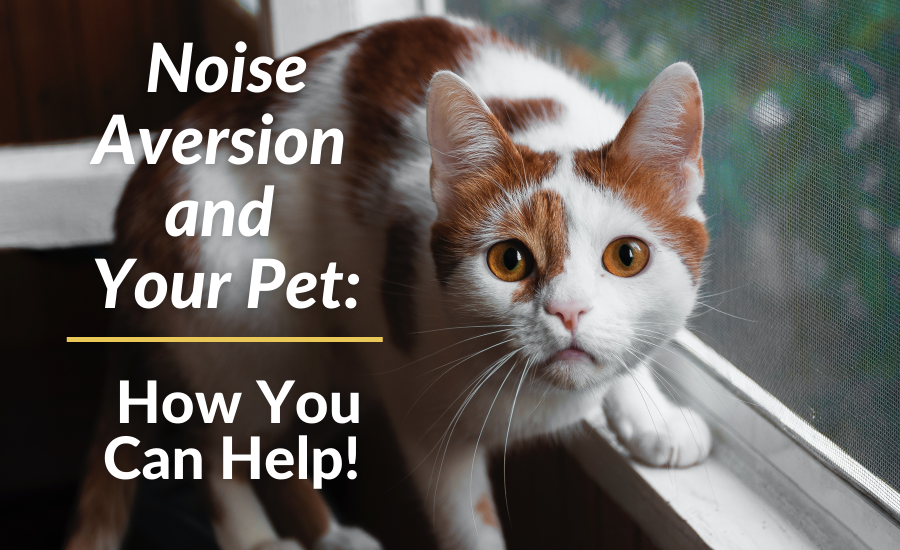Is your pet scared of loud noises such as fireworks or thunder? Noise aversion is a common problem in pets. Unfortunately, storms and firework celebrations typically occur more frequently during the summer, and it’s important to take some extra steps to help your pet feel at ease. At Minnesota Veterinary Hospital, your pet’s comfort and peace of mind are always a priority.
Here is what you need to know about noise aversion and some simple steps that can help your pet.
What Is Noise Aversion?
A noise aversion is a fear reaction caused by a sudden loud noise. While this aversion is sometimes caused by a single traumatic event, it can also be the result of repeated exposure to a sudden and frightening sound.
The severity of noise aversions can drastically vary and range from mild fear to extreme panic. Some of the most common noise aversion symptoms include panting, pacing, and hiding. However, in severe cases, pets may exhibit destructive behavior or attempt to escape.
Creating A Safe Space
While noise aversion can be detrimental to your pet’s overall well-being, there are certain steps you can take to help reduce your pet’s fear and keep them calm. If you notice your pet is experiencing noise-related anxiety, consider setting up a safe space to help them get away from the noise. This could be an interior room away from windows or doors or a cozy spot that brings them comfort.
When creating this safe space, you should also consider additional ways you can help drown out the noise. Turning on some music or using a fan for white noise can provide a sense of calm and distract your furry friend from any sudden booms.
Planning Ahead and Staying Calm
Another essential step in helping pets with noise aversion is to plan ahead and remain calm. Check your local weather report and be on the lookout for any local events that may include fireworks. Although you can’t predict every boom, this will give you a better idea of what to expect and when your pet may need some extra care.
If you are expecting a noise event, it’s critical to remain calm and try to keep your pet’s routine as stress-free as possible. Consider taking your pet to their safe space before the noise begins. Pets can feed off your anxiety, so remember to relax and offer your pet some gentle reassurance. Additionally, try to avoid leaving your pet home alone or taking them outside when you expect a loud noise event to occur.
Getting Your Pet Additional Care
Helping pets with noise phobias can be challenging. In severe cases, additional resources may be necessary to provide your pet some relief and reduce their anxiety. Some pets may benefit from the addition of calming medications or supplements.
If your pet is struggling with noise aversion, our team at Minnesota Veterinary Hospital is here to help. We are happy to discuss your pet’s condition and ensure they get the appropriate care. To schedule an appointment, please give us a call at 651-484-3331. We look forward to hearing from you and helping your pet fight their noise fears!
Image credit: Pexels

